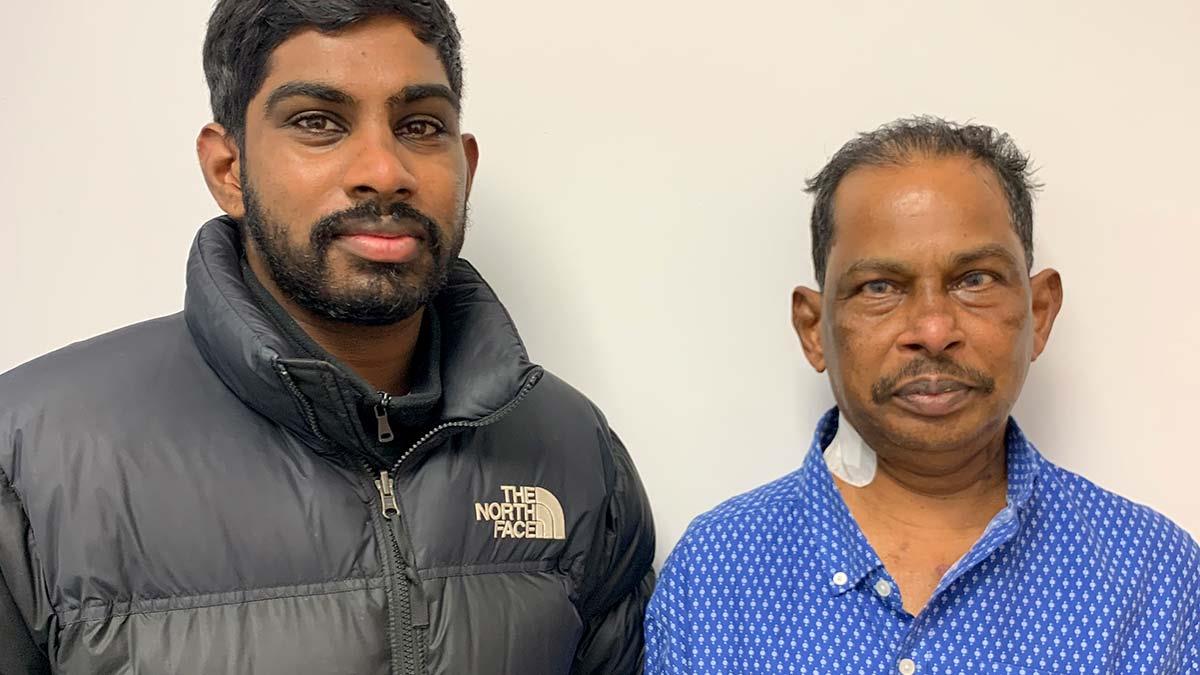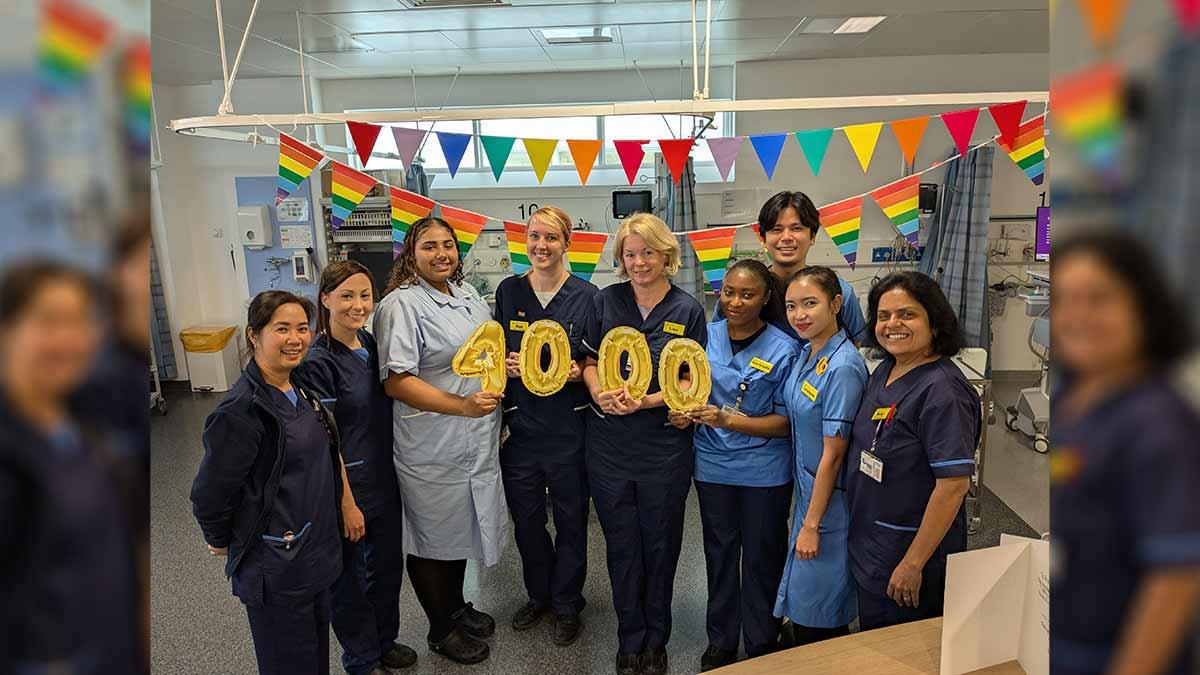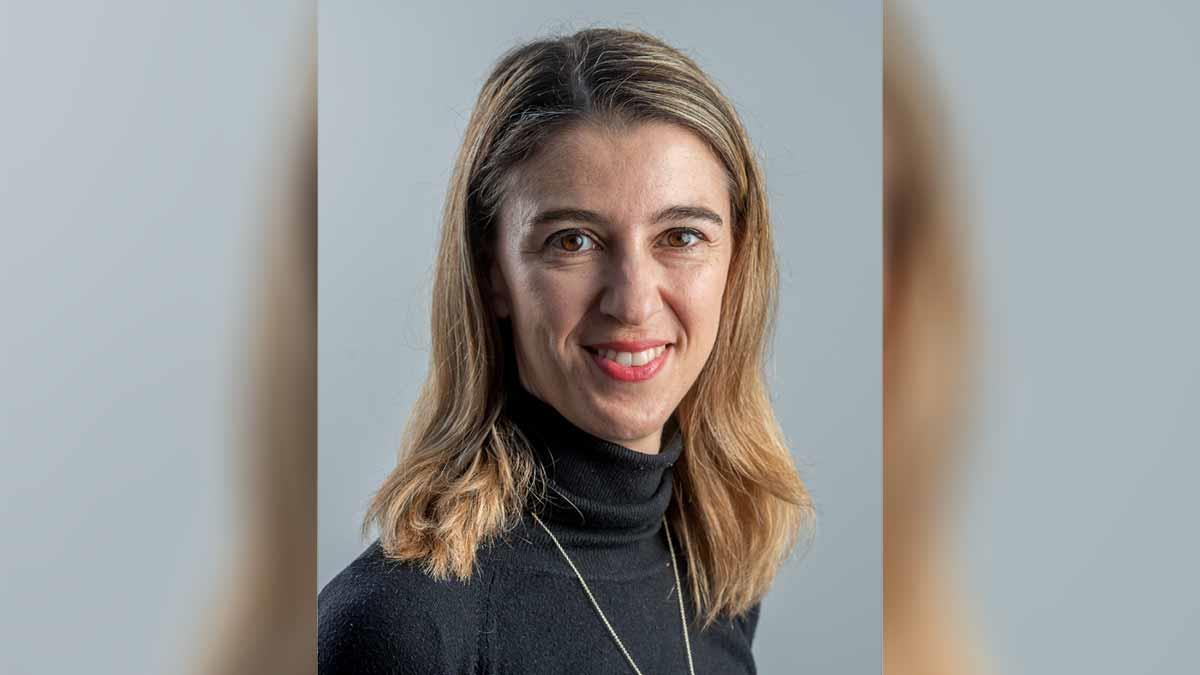Birmingham man receives hospital’s 1,000th heart transplant
Published on 23/05/2022

A man from Tyseley in Birmingham has received the 1,000th heart transplant at Queen Elizabeth Hospital Birmingham (QEHB).
A combined heart and liver transplant operation in March gave Sarvan Kanagaratnan, 60, a new lease of life after recovering well from his surgeries. The operation took place in the week the hospital carried out its 6,000th liver transplant. These are hugely significant milestones for the University Hospitals Birmingham NHS Foundation Trust (UHB) solid organ transplant programme, which is one of the busiest in Europe.
Mr Kanagaratnan said: “When the doctors said that the double transplant could go ahead, and that it would be the 1,000th heart transplant for the Trust, I thought that it must be a lucky sign.
“I don’t remember much after going into theatre for the operation and during recovery in intensive care, but I’m really grateful that I was given the opportunity to have a heart and liver donation.
“I have been looked after so well, first on Ward 304, then the Critical Care Unit, and then on Ward 727 at Queen Elizabeth Hospital Birmingham. I am really grateful to everyone that has looked after me.”
Sarvan was diagnosed in 2012 with a condition called arrhythmogenic ventricular cardiomyopathy. This is where the heart muscle on the right side is thicker and weaker than the left side. When Sarvan was assessed for his heart transplant, his liver function was normal. However, as time went on, fluid accumulated around his abdominal organs, causing liver cirrhosis. It was then that Sarvan was assessed to receive a combined heart and liver transplant.
Savan’s son, Niro Kanagaratnan, remembers the day when he received the call to say that the operation would go ahead, vividly. He said: “My dad had been waiting since November for a suitable donor and was very poorly in Queen Elizabeth Hospital. The call came through to say that the heart and liver had been screened and results came back that they were healthy and suitable to be transplanted. I was kept updated and received a call that the surgery went well and the hospital team was happy with how it went.
“It’s been a lot for the family to take in, never mind how dad must feel! But we are happy he has recovered so well, and is getting back to feeling himself. There are lots of family that want to see him, and with both our birthdays coming up soon too, we will have to have a bit of a celebration despite my dad’s protests that he doesn’t want a fuss!”
UHB’s first heart transplant took place in in 1993. There are now between 30 and 40 heart transplants performed at UHB each year. However, like all hospital services nationwide, the transplant programme was impacted by the COVID-19 pandemic.
Mr Jorge Mascaro, Director of Heart and Lung Transplants at QEHB, said: “Reaching this milestone is a tremendous achievement and is testament to the dedication and hard work of the whole team involved in the transplant programme at UHB.
“This operation took more than 24 hours to perform, and involved the collaboration of cardiology and liver surgeons, the transplant co-ordinators, intensive care staff and nursing teams before, during and after surgery to work together for the best outcome for the patient.
“However, none of this would be possible without the donors and the donor families. It is thanks to the incredible gift they give that helps others to live.”
Mr Thamara Perera, Consultant Liver Transplant Surgeon and Transplant Surgery Lead, said: “Combined cardiothoracic (heart or lung) and liver transplants are extremely complex, and require input from a number of specialists as well as the wider team. It’s a truly remarkable achievement, and a testament to the dedication and commitment of the team.
“None of these transplants would be possible without the noble gift of organ donation, which we should remember at times like this.”
Organ donation from one person can save up to nine lives, but it's really important to talk to loved ones and make sure they understand and support your organ donation decision.
You can also register your decision on the NHS Organ Donor Register.


